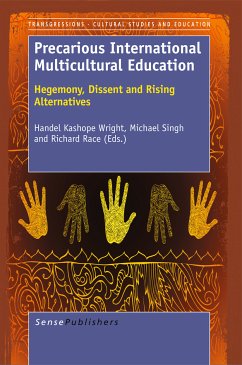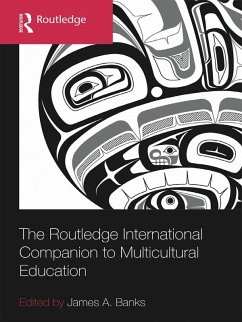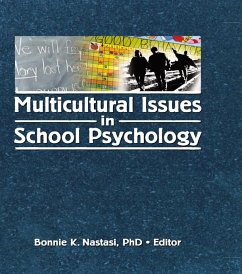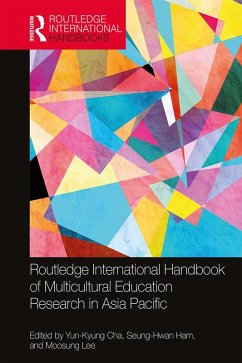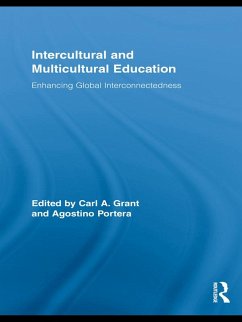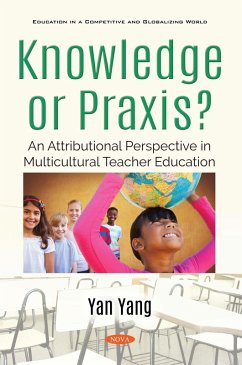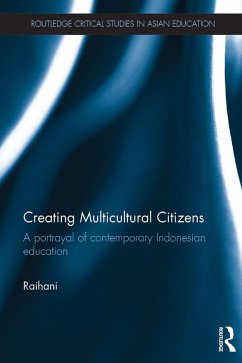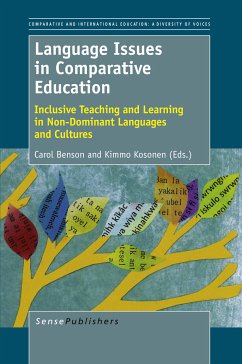
Language Issues in Comparative Education (eBook, PDF)
Inclusive Teaching and Learning in Non-Dominant Languages and Cultures
Redaktion: Benson, Carol; Kosonen, Kimmo

PAYBACK Punkte
14 °P sammeln!
This volume compiles a unique yet complementary collection of chapters that take a strategic comparative perspective on education systems, regions of the world, and/or ethnolinguistic communities with a focus on non-dominant languages and cultures in education. Comparison and contrast within each article and across articles illustrates the potential for using home languages - which in many cases are in non-dominant positions relative to other languages in society - in inclusive multilingual and multicultural forms of education. The 22 authors demonstrate how bringing non-dominant languages and...
This volume compiles a unique yet complementary collection of chapters that take a strategic comparative perspective on education systems, regions of the world, and/or ethnolinguistic communities with a focus on non-dominant languages and cultures in education. Comparison and contrast within each article and across articles illustrates the potential for using home languages - which in many cases are in non-dominant positions relative to other languages in society - in inclusive multilingual and multicultural forms of education. The 22 authors demonstrate how bringing non-dominant languages and cultures into schooling has liberatory, transformative potential for learners from ethnolinguistic communities that have previously been excluded from access to quality basic education. The authors deal not only with educational development in specific low-income and emerging countries in Asia (Afghanistan, Bangladesh, Cambodia, the Philippines Thailand and Vietnam), Latin America (Guatemala and Mexico) and Africa (Mozambique, Senegal and Tanzania), but also with efforts to reach marginalized ethnolinguistic communities in high-income North American countries (Canada and the USA). In the introductory chapter the editors highlight common and cross-cutting themes and propose appropriate, sometimes new terminology for the discussion of linguistic and cultural issues in education, particularly in low-income multilingual countries. Likewise, using examples from additional countries and contexts, the three final chapters address cross-cutting issues related to language and culture in educational research and development. The authors and editors of this volume share a common commitment to comparativism in their methods and analysis, and aim to contribute to more inclusive and relevant education for all. "A richly textured collection which offers a powerful vision of the possible, now and in the future." Alamin Mazrui, Rutgers State University of New Jersey,USA "This book takes the local perspective of non-dominant language communities in arguing for a multilingual habitus in educational development. Benson and Kosonen masterfully extend theories and clarify terminology that is inclusive of the non-dominant contexts described here." Ofelia García, City University of New York, USA
Dieser Download kann aus rechtlichen Gründen nur mit Rechnungsadresse in A, B, BG, CY, CZ, D, DK, EW, E, FIN, F, GR, HR, H, IRL, I, LT, L, LR, M, NL, PL, P, R, S, SLO, SK ausgeliefert werden.



